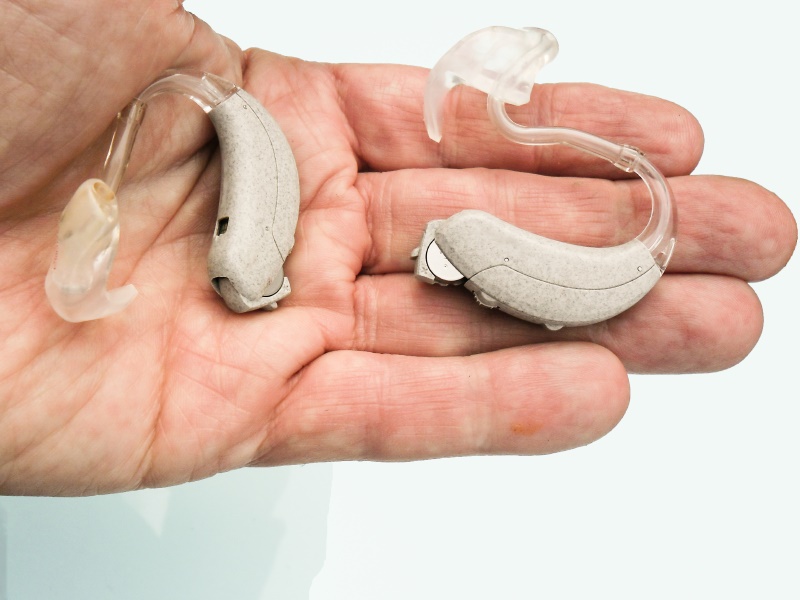
To help keep your hearing aids working properly for years to come, you need to learn proper care and maintenance. And while it may seem like an additional burden, with the right approach your hearing aid care will become easy and automatic.
The secret is developing effective habits.
If you assimilate your hearing aid care into your everyday and nightly routines, before long it won’t seem like any extra work at all.
The following are some tips for the daily care of your hearing aids (which your hearing professional will also discuss with you):
Clean your hearing aids daily – Attempt to integrate your hearing aid cleaning into your evening routine, so it will become as automatic as brushing your teeth. Daily cleaning is imperative because daily hearing aid cleaning can prevent the collection of earwax, dirt, and dust into the various components of the hearing aid, which can cause distorted sound with time.
You’ll want to clean your hearing aid with a smooth, dry cloth, while averting any liquids that can damage the hearing aid electronics. Talk with your hearing professional for specialized instructions on cleaning each kind of hearing aid.
You might also want to consider purchasing a hearing aid sanitizer, which utilizes ultraviolet light to safely and thoroughly kill dangerous pathogens. Hearing aid cleaning kits are also available with all of the instruments you’ll require to safely and securely clean the device without causing damage to the electronics.
Always check the batteries – Hearing aid batteries should be examined and replaced frequently to ensure peak hearing aid performance. Consider using a battery tester in the morning to assure you have enough power for the rest of the day, and keep an extra set of batteries on hand.
Before bedtime, when your hearing aids are not in use, shut them off and store them in a cool, dry location with the battery door open.
Store your hearing aids in a secure place – In regard to storage, you’ll want to keep in mind three things:
- Keep the hearing aids away from moisture. This means that storing your hearing aids in the bathroom is probably a bad idea.
- Avoid exposing the hearing aids—and hearing aid batteries—to temperature extremes. You’ll want to store your hearing aids in a cool, dry place.
- Avoid storing your hearing aids out in the open, where they can become damaged.
We highly recommend keeping your hearing aids in a container or drying kit within the drawer of a bedroom side table. This will defend the hearing aids from dampness, temperature extremes, and damage from being bumped off the table.
In addition, remember to remove your hearing aids prior to taking a shower, swimming, or using a hair dryer or hair spray.
Maintain ear hygiene – While earwax has several helpful characteristics, like protection and lubrication of the ear canal, it can cause severe damage to your hearing aids. As it becomes wedged within the hearing aid components, sound can become distorted.
Make sure you’re maintaining appropriate ear hygiene, and if you experience excessive earwax, consider setting up a visit with a professional.
Carefully put in your hearing aids – When putting in your hearing aids, lean over a table or soft surface in the event the hearing aids fall. Hearing aids include delicate electronics, so a fall on a hard surface could bring about significant damage.
Even with vigilant cleaning and maintenance, over time the hearing aid will call for more comprehensive cleaning or repair.
To make sure that you continue to yield the best sound possible, we advise getting your hearing aids professionally cleaned by a hearing professional a minimum of twice per year.
Hearing care professionals will provide you with a deep cleaning, a tune-up, and will on occasion replace parts. Staying on top of this routine maintenance will prolong the life of your hearing aids and will assure that you get the optimal sound.
